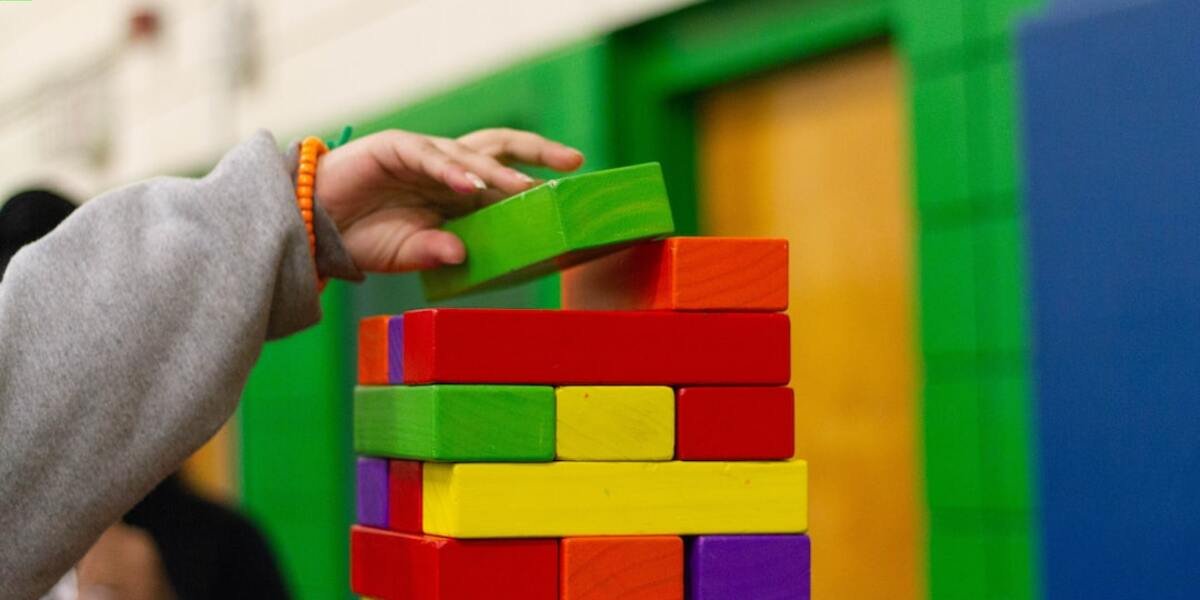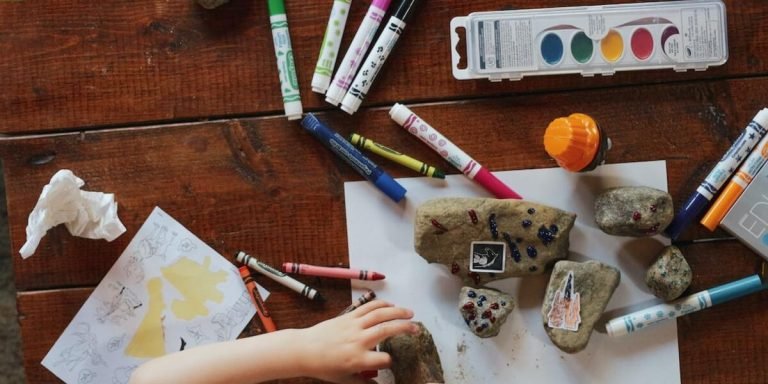Field Day Activities that Encourage Learning and Fun in Early Education
Outdoor activities play an indispensable role in early education. Among these, a preferred favorite for many schools and educators is the “field day.” Blending fun with learning, field days offer numerous opportunities for experiential or activity-based learning which are integral to comprehensive childhood development.
This form of interactive pedagogy not only motivates children but also fosters their cognitive skills. Field days can transform theoretical knowledge into genuine understanding through practical application, making them appealing and engaging alternatives to conventional classroom instruction. These events indeed make it possible for children to grasp complex ideas more effectively while having fun at the same time.
Did you know?
A study by the American Academy of Pediatrics found that unstructured outdoor play – like field day activities – helps children to develop important skills, including problem-solving, cooperation and creativity.
The Impact of Field Day Activities on Experiential Learning
Field Day activities bring a new dimension to experiential learning, creating an environment where children can engage in hands-on experiences and learn more effectively. As we step into 2023, the importance of such methodologies has become increasingly evident; educators now recognize that immersive events like field days are much more than physical exercise or time spent out of the classroom. They offer valuable opportunities for students to connect theories learned within lecture halls with real-world situations.
Unlike typical lectures which lean towards passive absorption of information, Field Days promote active participation and induce curiosity among young learners about their surroundings. Children get to apply what they’ve been taught theoretically through various outdoor games and challenges aligned along educational themes. For instance, a fun game incorporating math problems not only reinforces numerical skills but also fosters teamwork as kids cooperate with peers to achieve common goals.
In conclusion, it’s important for both parents and teachers alike in this modern era not just appreciate but actively incorporate these pragmatic forms of teaching methods wherever possible — be it school-wide yearly events or weekly activity periods woven into daily curriculums.
Applying knowledge is after all one part education often overlooked by traditional schooling systems yet contrarily stands at heart when garnering truly impactful results from current day educating process revolving around Experiential Learning approaches.
To put simply: Field Day Activities – The perfect platform blending fun-filled excitement with insightful life lessons thereby promoting wholesome growth!
Enhancing Cognitive Skills Through Outdoor Educational Games
Participating in field day activities isn’t just about fun and games. Indeed, these outdoor educational experiences hold significant potential for enhancing children’s cognitive skills and fostering an environment of experiential learning.
Take hide-and-seek, for instance. This playful pursuit conveys lessons on problem-solving where kids learn to strategize the best hiding spots or identify patterns concerning where their friends often conceal themselves. It stimulates critical thinking – a key cognitive skill that forms the backbone of decision-making abilities later in life.
Then there are team-based contests like tug-of-war or relay races highlighting not only physical prowess but also promoting cooperation, communication and strategic planning among peers—skills highly valued inside classrooms as well as outside them today!
Moreover, it is worth noting how such interactive gaming sessions can help improve memory retention capacities–a crucial aspect underpinning successful academic performance at large. As per numerous studies conducted over recent years (2023 included), students who actively engage with what they’re studying through hands-on projects or innovative play methods tend to absorb information more effectively compared against those relying solely upon textbook theories.
Additionally, let’s touch base on resilience building too—an integral part of mental development which gets considerably boosted during challenging moments encountered while competing outdoors! Yes– perseverance gained via overcoming tricky obstacles paves way towards shaping resilient minds readying younger ones better equipped tackling future hurdles confidently!
Bridging Theory and Practice with Team-Based Challenges
“Field day represents an exciting and interactive approach to learning, combining practical activity with theoretical knowledge – a brilliant example of experiential education. One might wonder – how does it weave such magic?
Firstly, field days act as team-based challenges that allow learners to put the theories they have learned in class into practice. These activities are not conventional classroom teachings but hands-on tasks where students actively participate. It could be anything from solving puzzles, navigating mazes or even participating in a science experiment!
In these scenarios, children aren’t merely absorbing information; they’re involved in every step of problem-solving processes which solidify their understanding of concepts taught earlier.
Secondly, ‘learning by doing’ is at the core of Field Day experiences. When youngsters engage physically and mentally while accomplishing different exercises during these team-based challenges on field days: They observe first-hand results based on cause-and-effect principles thus bridging theory into actual events happening before them.
Also important to note – research supports the benefits this brings! Studies show active involvement boosts comprehension rates much more than passive instruction can ever hope for.
Another aspect worth noting is teamwork fostered through group-themed contests during Field Days encourage social bonding among pupils too. This camaraderie built amongst young minds inevitably fuels better communication skills followed by leadership prowess down the line.
Designing an Effective Field Day Curriculum for Hands-On Learning
Engaging children in the learning process has always been a puzzle, and educators are continually seeking innovative ways to make this easier. One such method that’s gaining popularity is organizing field days – an experiential learning approach with significant benefits for holistic childhood education. With 2023 bringing more focus on hands-on experiences as part of curriculum planning, grasping how to design an effective field day becomes integral.
Field days embody activity-based learning by taking academics beyond conventional classroom boundaries. As you plan your next event, remember it isn’t just about fun; every game or task should offer educational stimuli to foster intellectual growth alongside physical agility. Activities could incorporate scientific principles via trial and error games or encourage artistic expressions through creative crafts workshops – all directed towards enabling students not only grasp theoretical concepts but also apply them practically.
Configuring these events can often prove challenging without proper structure due to their dynamic nature. Crucially aim for balance between recreational pastimes and scholastic objectives when designing activities–that’s key! Involving relevant visual cues aids memory retention while maintaining interest levels high among young minds which enhances overall comprehension rates significantly too.
Moreover, allowing ample room for exploration gives kids freedom within guided parameters fostering independent thinking skills necessary today’s problem-solving world.
To sum up: Field day curricula emphasizes experiential learning through playful engagement thereby enhancing cognitive development within a relaxed yet fruitful setting—ideal combination sparking lifelong enthusiasm towards continual self-improvement beyond academia alone.
Crafting a Diverse Range of Physical and Mental Tasks
The success of a field day heavily relies on the diversity and relevance of activities planned. Incorporating both physical and mental tasks into your curriculum ensures that each child’s unique skills are engaged, fostering an inclusive environment for all participants.
One pivotal aspect to remember when organizing a field day is varying the types of exercises offered. Physical challenges can range from classic games like tug-of-war or relay races to more innovative ones such as obstacle courses designed with eco-friendly materials. By including these active engagements, you not only promote fitness among children but also instigate teamwork and persistence.
Similarly, providing mentally challenging tasks anchors cognitive development while keeping fun at its core. Quiz-based competitions that center around subjects learned in school or easy-to-solve riddles encourage problem-solving abilities in kids without making it feel tedious. Pairing smaller groups for team quizzes could be another way to incorporate collaboration along with intellectual stimulation.
Moreover, weaving in creative pursuits within this mix could cater to those who show an inclination towards artsy areas like painting or drama improvisation sessions which focus on building expressiveness amongst young minds.
Besides planning sundry activities aligned with different skill sets educators must ensure inclusivity so no child feels left out during any task due to their strengths falling outside mainstream academic perimeters often seen as desirable by conventional yardsticks.
Integrating Cross-Disciplinary Approaches in Activity Planning
Cross-disciplinary learning, where students apply knowledge from various subjects to problem-solving in a real-world context, can be effectively integrated into your field day activities. Here’s how you can integrate cross-disciplinary approaches for an effective and fun experiential learning.
Secondly, consider sticking to thematic units that bridge over several disciplines relevant to each age group. Themes such as recycling might blend well between social sciences about environmental conservation and life sciences exploring decomposition processes – all presented through engaging outdoor tasks!
Teamwork is another aspect worth emphasizing in cross-disciplinary activity planning because it builds cooperative learning which is essential for nurturing soft skills among children alongside cognitive ones.
Remember also the importance of diversity within teams – invite everyone’s contribution thereby paving way for more inclusive participation across gender lines or ability levels alike.
Lastly but importantly ensure there are plenty of opportunities given throughout every event related sequence (whether game playing sessions followed by discussion periods) allowing participants reflect what they’ve learned hence reinforcing their understanding via shared insights plus experiences — something crucial towards promoting overall comprehension retention rates too!
Evaluating the Outcomes of Experiential Learning Post-Field Day
Field days are a time-honored tradition in schools, offering an opportunity for experiential learning that goes beyond the confines of a classroom. They provide children with an interactive platform to apply theoretical knowledge into practical scenarios while understanding the various facets of teamwork, leadership, and cooperative behavior. But how do we evaluate what kids learn from these experiences once they’re back indoors?
The focus here is on evaluating outcomes post-field day.
Experiential learning encourages observation and participation as key components of education; hence every field trip should be concluded with thought-provoking discussion sessions at school or home. During such discussions children can recount their observations, express feelings about them thus helping adults identify if any noticeable change occurred in individual students’ outlooks due to this dynamic mode of teaching.
It even assists educators by providing valuable insights on effective planning for future hands-on educational activities considering varying student responses against diverse themes explored across multiple field exposures throughout academic tenure till date- culminating into formation better instructional strategies aimed improving overall scholastic excellence journey youngsters onwards year 2023 then beyond!
Assessing Skill Development and Knowledge Retention
Experiential learning, or activity-based learning as it’s often also referred to, has become an increasingly prevalent practice in education. This hands-on approach allows children to immerse themselves in the process of active engagement and reflection.
One significant experiential learning event that pupils look forward to is the field day – an occasion teeming with fun games and meaningful lessons. But how can educators and parents assess if kids are truly benefiting from these activities? How do we quantify their skill development and knowledge retention post-field day?
Firstly, let us consider evaluating a child’s social skills which might significantly improve during a field day experience. Observe your child before, during, after this engaging event—observe for signs like willingness to participate in group tasks or improved communication capabilities on sharing ideas within their team.
The same concept applies when assessing cognitive abilities such as problem-solving skills—a crucial competence honed through interactive participation at events like field days. Take note of instances where students were required to strategize or make quick thinking decisions while navigating various challenges throughout the day of outdoor adventures.
Feedback Mechanisms to Measure Student Engagement and Learning Gains
Examining the feedback mechanisms to measure student engagement and learning gains is an integral part of assessing experiential learning or activity-based learning post-field day. In 2023, with numerous digital tools at our disposal, these evaluations have transformed from mundane paper tests into interactive processes that genuinely engage students.
One primary way educators can gauge learner involvement during a field day event is by observing their levels of participation. Active participants are generally eager learners who stand to gain more knowledge out of the experience. A keen eye on student interaction will provide immediate insight into how engaged they were in each activity.
Implementing formative assessments throughout experientially designed activities offers another effective technique for evaluating educational outcomes in real-time Rather than waiting for an end-of-the-day test results, educators obtain instant access to data about what aspects are effectively resonating with children and where improvements might be necessary. This continuous feedback loop allows quick adjustments based on student performance trends.
Moreover, self-assessment techniques empower youngsters as active stakeholders in their own education journey this year.
Yet another popular method employed includes peer assessment strategies which encourage cooperation among peers fostering emotional intelligence alongside academic growth.
Conclusion
As we’ve explored hands-on, field day activities not only bring a wave of excitement to early education but also inculcate invaluable lessons around teamwork, resilience and problem-solving among children. Who knew that “play” could be such an essential classroom resource? Well, now it doesn’t just have to be on Field Day – the methods introduced here can make any school-day feel like ‘field day’, infusing learning with abundance fun.
Remember always – childhood is about discoveries; let every experience count towards their growth and understanding. We invite you to delve deeper into our other content where we share several more resources related to childhood education. From parental guidance articles to comprehensive teacher support tools – there’s much more than ‘Field Day’ at your disposal for nurturing your little ones or students!







